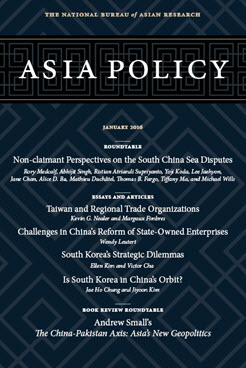Between a Rock and a Hard Place
South Korea's Strategic Dilemmas with China and the United States
This essay examines four strategic dilemmas that the Republic of Korea (ROK) faces vis-à-vis China and discusses their implications for regional and U.S.-ROK relations.
EXECUTIVE SUMMARY
MAIN ARGUMENT
The current bilateral relationship between China and South Korea is the best in the two nations’ modern histories. It is not clear, however, whether the current positive trajectory can be sustained into the future, given the recurring fluctuations in South Korea’s policy toward China. This dynamic results from four strategic dilemmas that South Korea faces in dealing with China: dilemmas over power, economics, North Korea, and entrapment in the U.S. alliance. Recent developments in Sino-ROK relations have led to new opportunities for greater bilateral cooperation but also have important implications for regional relations. In the triangular context of the U.S.-ROK-China relationship, South Korea’s closeness with China has not come at the expense of a diminished relationship with the U.S. This demonstrates that its bilateral relationships with China and the U.S. may not be mutually exclusive but could achieve positive-sum gains. Nevertheless, South Korea still faces significant challenges in managing relations with both countries.
POLICY IMPLICATIONS
- Understanding South Korea’s strategic dilemmas vis-á-vis China is critical for the U.S. in order to successfully manage its alliance with the ROK. The two allies must address a misalignment of their policy priorities regarding China and determine how to sustain a coordinated, if not common, strategy.
- The U.S. must recognize that South Korea’s outreach toward China is not construed as alliance dissonance. Seoul’s active engagement with Beijing can be a strategic opportunity to influence China to adhere to global norms and behave as a responsible stakeholder.
- South Korea’s relationships with the U.S. and China need not be a zero-sum game or mutually exclusive. A deep alliance with the U.S. actually strengthens South Korea’s position as it deals with China, but only if Seoul resists Beijing’s efforts to demarcate the scope of its alliance with Washington.
About Asia Policy
Asia Policy is a peer-reviewed scholarly journal presenting policy-relevant academic research on the Asia-Pacific that draws clear and concise conclusions useful to today’s policymakers. Asia Policy is published quarterly in January, April, July, and October and accepts submissions on a rolling basis. Learn more


